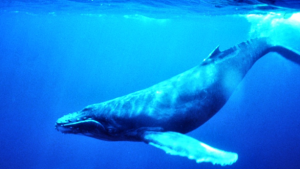News
Latest Lion Aid News
Whales, Minister Benyon, and CITES
Thursday 21st July 2011
|
From the 11th to the 14th of July, the International Whaling Committee held their annual meeting in Jersey, one of the UK-administered Channel Islands. Read on, and you will understand why this meeting was of particular interest to LionAid…
The IWC has been entrusted with the commerce and conservation of whales, and is the body where 89 member nations meet yearly to discuss a variety of issues. These include the quotas for “indigenous” whale hunters, like the Inuit people of Greenland and Alaska where whale hunting has been a traditional practice. Also, the IWC is supposed to be concerned with whale conservation and oversee the quotas and activities of Japan, Iceland, and Norway; countries that still practice whaling. Their fleets of ships are engaged in a practice called “scientific whaling”, all supposedly good for the understanding and conservation of the species while whale meat derived is actively marketed and consumed by conservation-minded citizens of those countries. Japan is a prime mover and shaker for the “sustainable” use of whales, and therefore their whaling vessels have regular run-ins with Greenpeace ships that shadow and monitor their “conservation” activities. Among anti-whaling activists and nations that have abandoned whaling in recognition of the great damage done to whale populations by their commercial utilization, the IWC has recently been rated somewhere between a joke and a corrupt doorknob to allow continued access to a resource in great decline. According to the Guardian newspaper “Japan, the leading pro-whaling country, has been widely accused of "buying" the votes of landlocked countries such as Mali and Mongolia, which have no possible interest in whaling, with promises of development aid. It is also accused of persuading dozens of small Caribbean and Pacific nations to vote for their proposals by paying delegations' hotel bills and travelling expenses, and giving money to help small countries' fishing industries in the months before crucial votes”. Japan denies all, and stands behind the right of the delegates from Mali and Mongolia to pass judgement on utilization of whales. It should be pointed out that the anti-utilization nations rely on support from assessments by similarly landlocked nations like Austria, the Czech Republic, Hungary, Luxembourg, Slovakia, Switzerland and San Marino. But perhaps those delegates pay their own way? Anyway, such was the state of affairs in the IWC. But now, along came the UK with some new proposals, all of which were accepted by delegates, including those from Japan. Minister Benyon (who is carrying forward LionAid proposals to call for a cessation in trade in lion trophies and body parts) insisted that the IWC was well behind the times in terms of transparency. His proposal included a much better administration of finances, the ability of NGOs to participate in debates during the sessions, and perhaps of greatest importance, that science plays a much greater role. The UK proposal said it requested “the Scientific Committee to review its operations and Rules of Procedure, with respect to enhancing the transparency and verifiability of its scientific advice… that Scientific analyses to be used for decisions of the Commission would first have been reviewed by the Scientific Committee before they could be considered by the Commission plenary… and that it is in the nature of science that its reliability is enhanced by openness, which allows for critical review of analyses within the broader scientific community”.
Japan rather spoiled the meeting by organizing a walkout of their like-minded delegates on the last day when a vote was called by Brazil and Argentina on a long-standing proposal to designate a whale sanctuary in the South Atlantic, as Japan clearly opined this would be against the conservation of whales. But nevertheless, the UK achievement stands. The UK proposal also included a regulation perhaps missed by Japan: “The Commission shall not accept external funds from… Individual companies directly involved in legal commercial whaling under the Convention”.
All very positive! So now LionAid would ask Minister Benyon to request another international convention to clean up their act. We are of course talking about the Convention on International Trade in Endangered Species of Fauna and Flora. Let’s have CITES be put to task to carefully evaluate scientific information for a change. Let’s have them cease influence peddling by organizations “directly involved” in commerce and countries like Japan (again) who put their commercial interests in tuna before conservation. Let’s have CITES be much more transparent and diligent. Let’s have CITES actually pay much better attention to the conservation of the biodiversity with which we have entrusted them. In that case lions would be much better off, as CITES would some time ago have agreed that further trophy hunting was clearly damaging to the conservation of the species Tags: Hunting, CITES, Richard Benyon, Whales, Categories: Politics and Wildlife |
Posted by Pieter Kat at 13:17
No comments have been posted yet.
Add a new comment
Existing user
New user sign up




